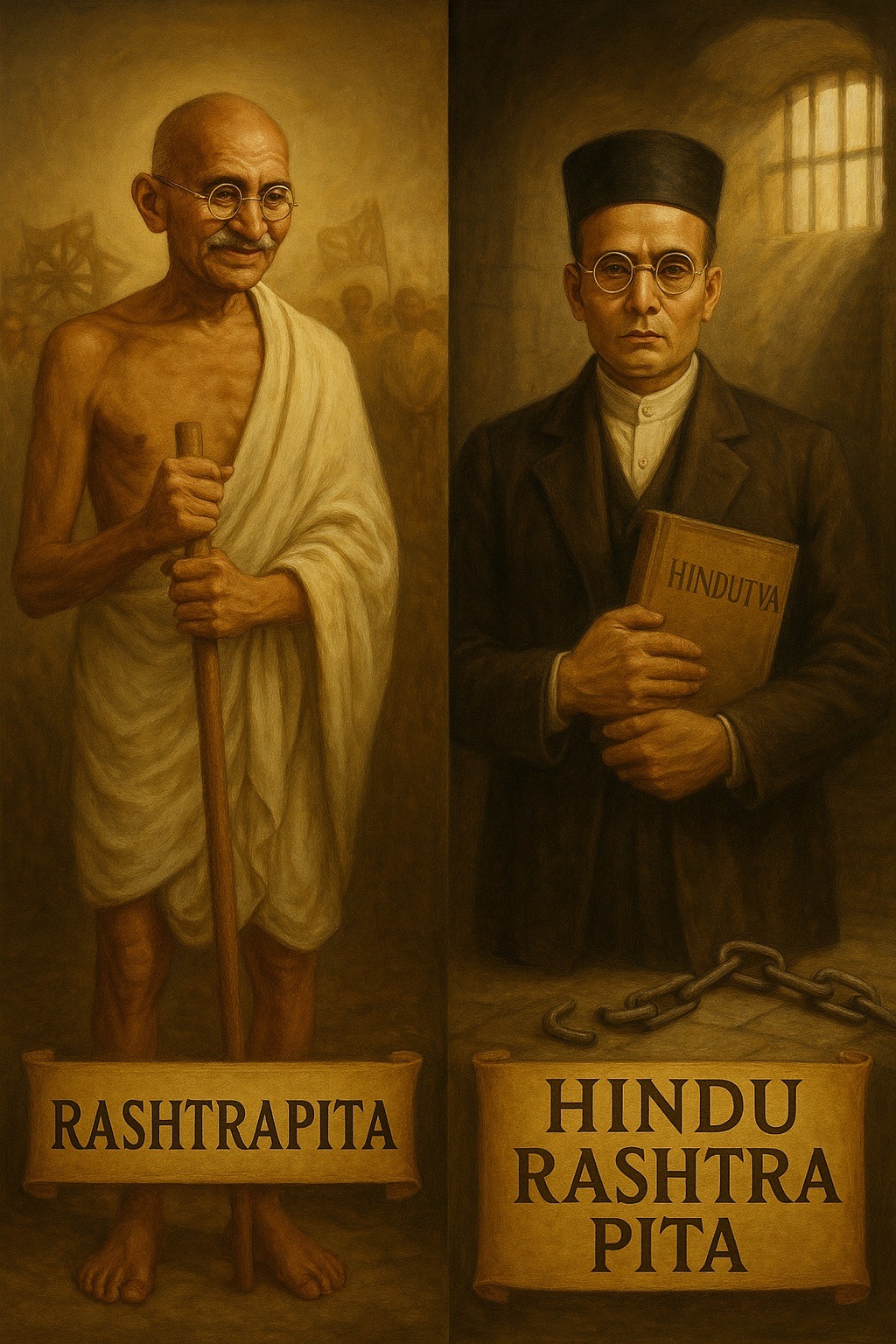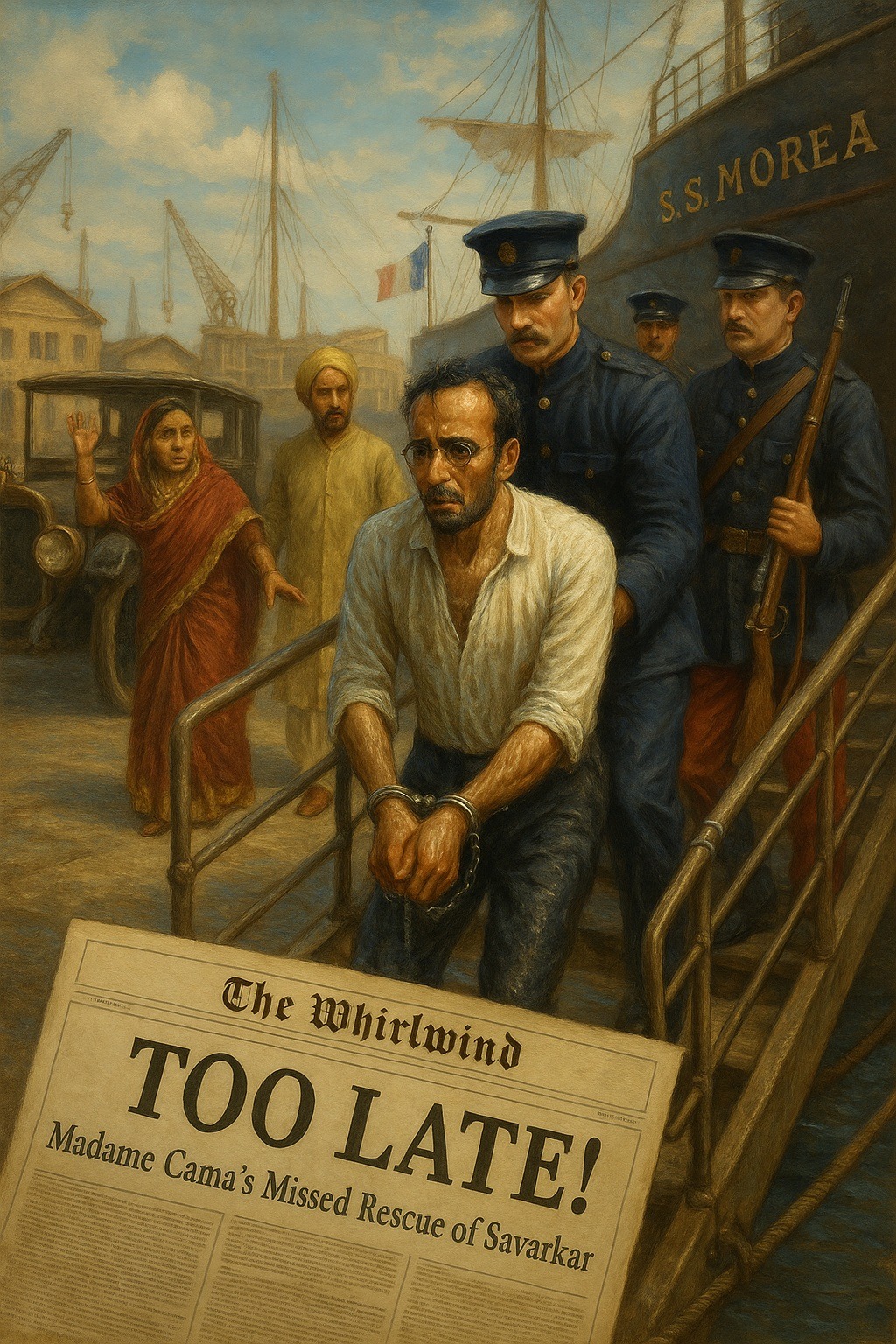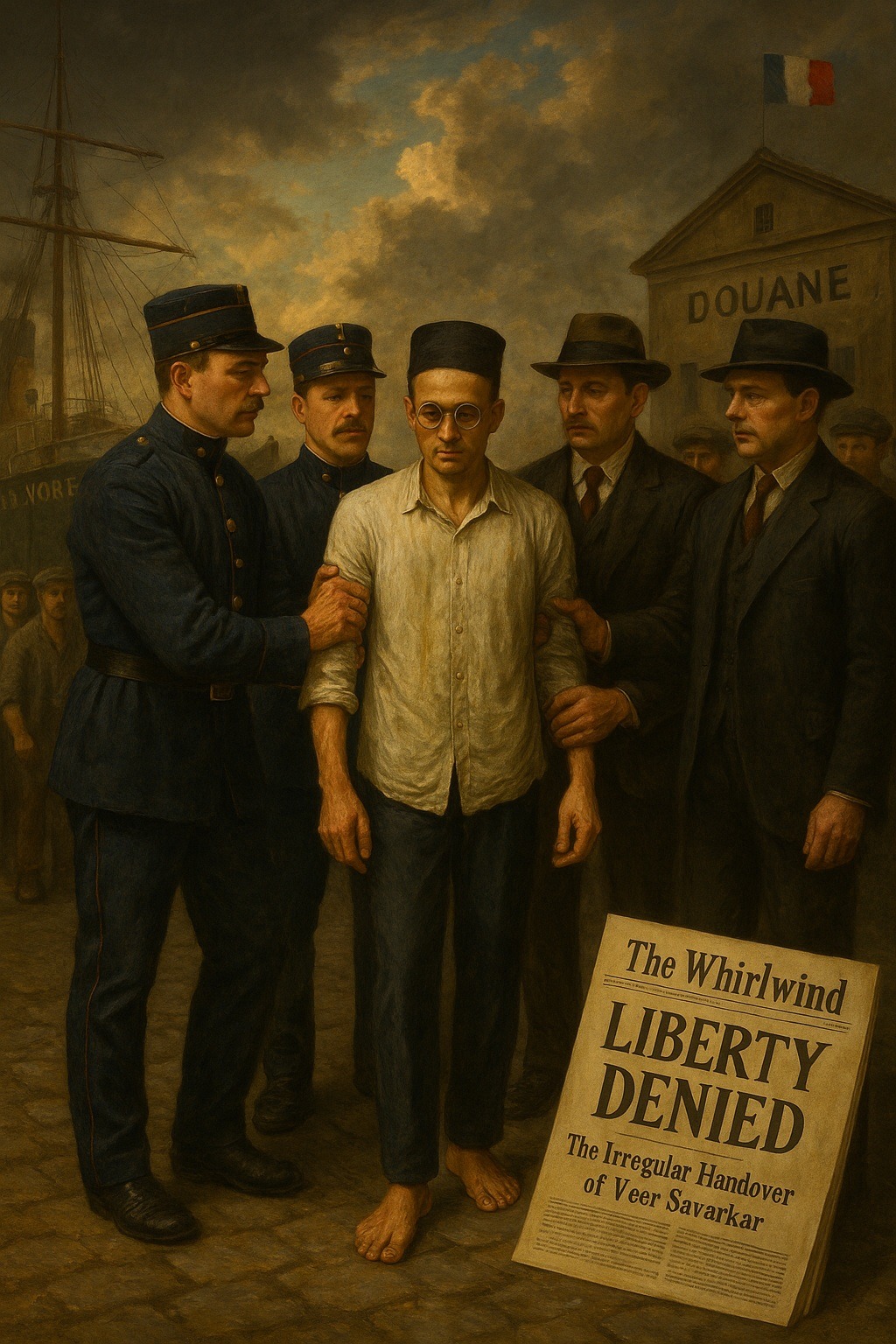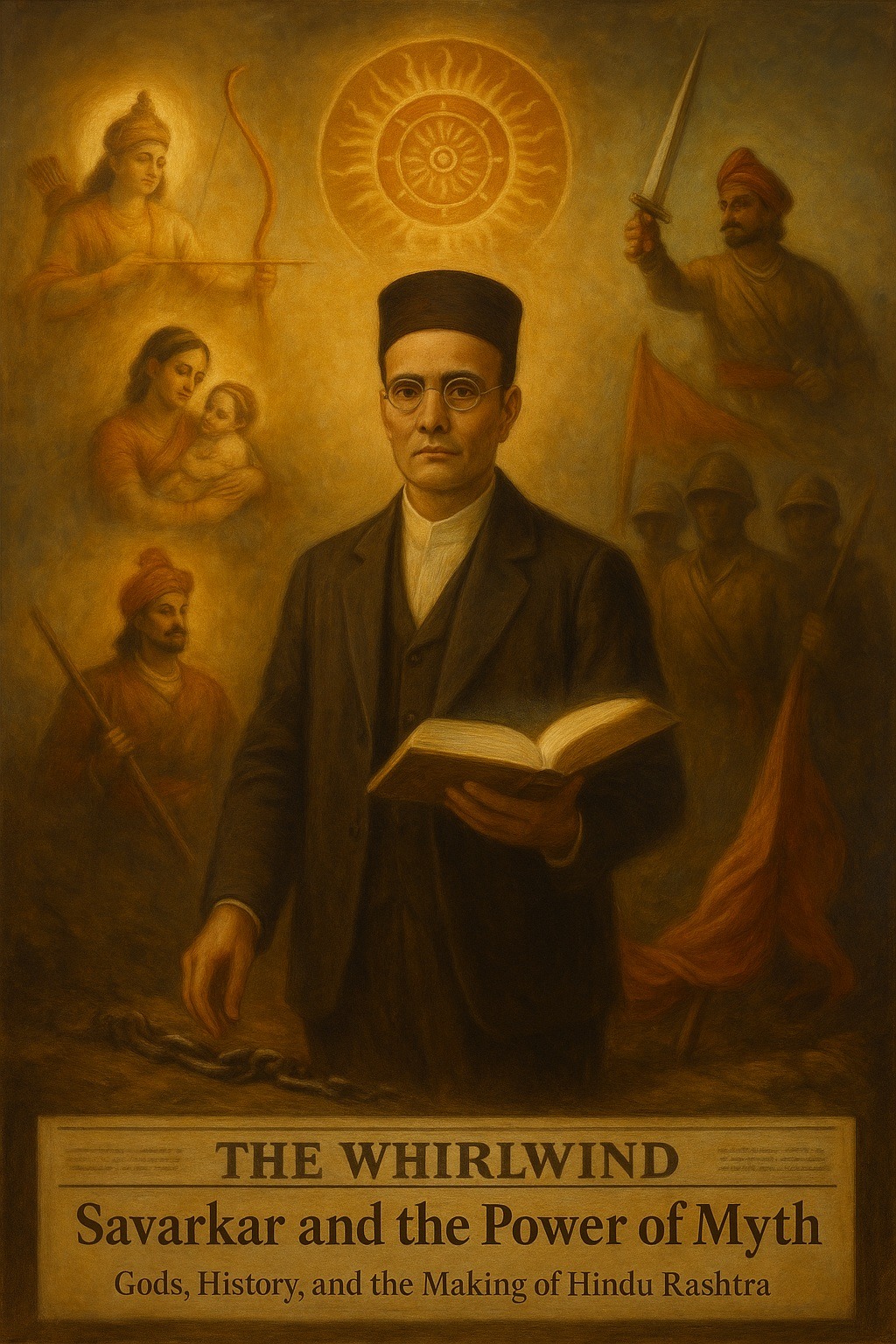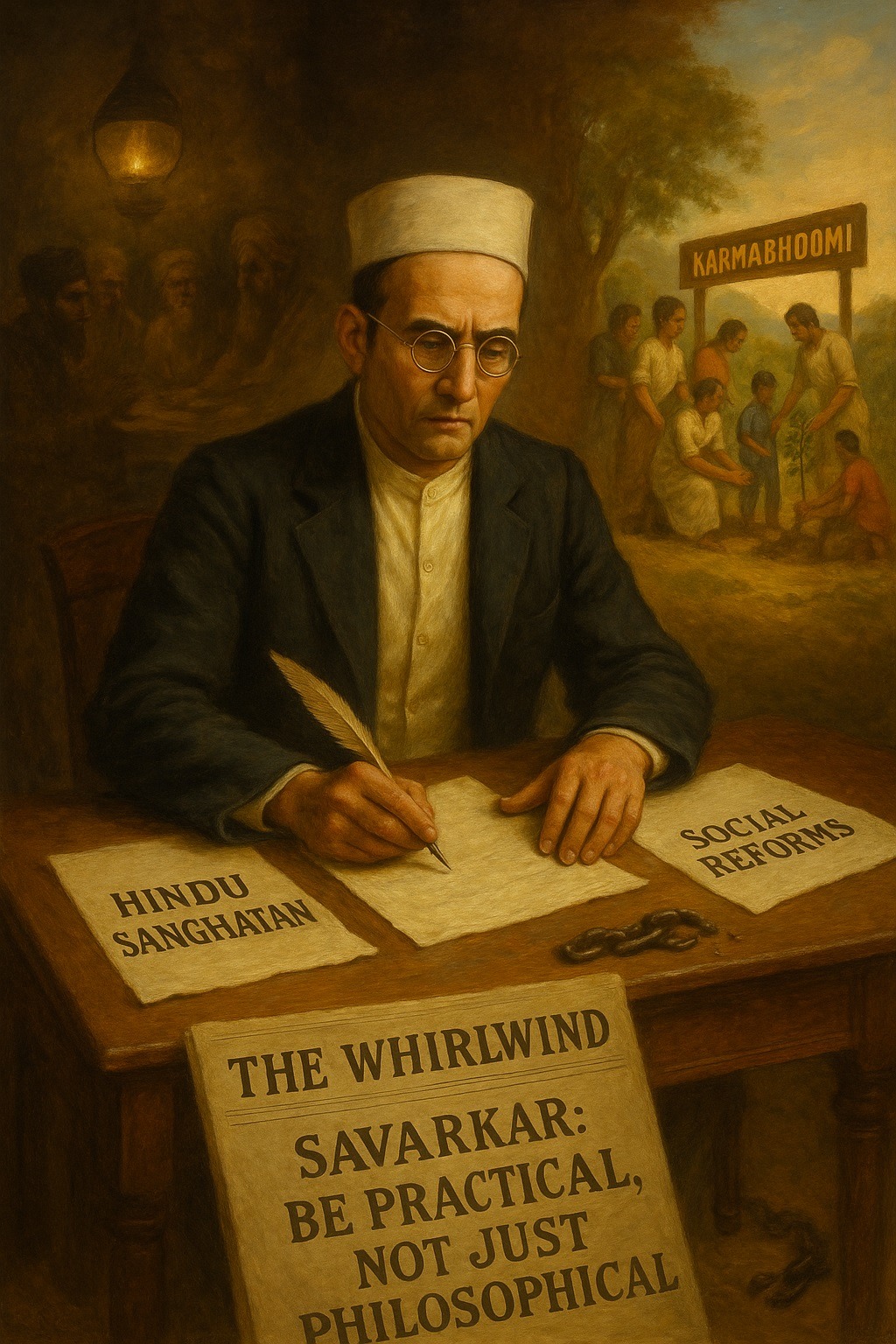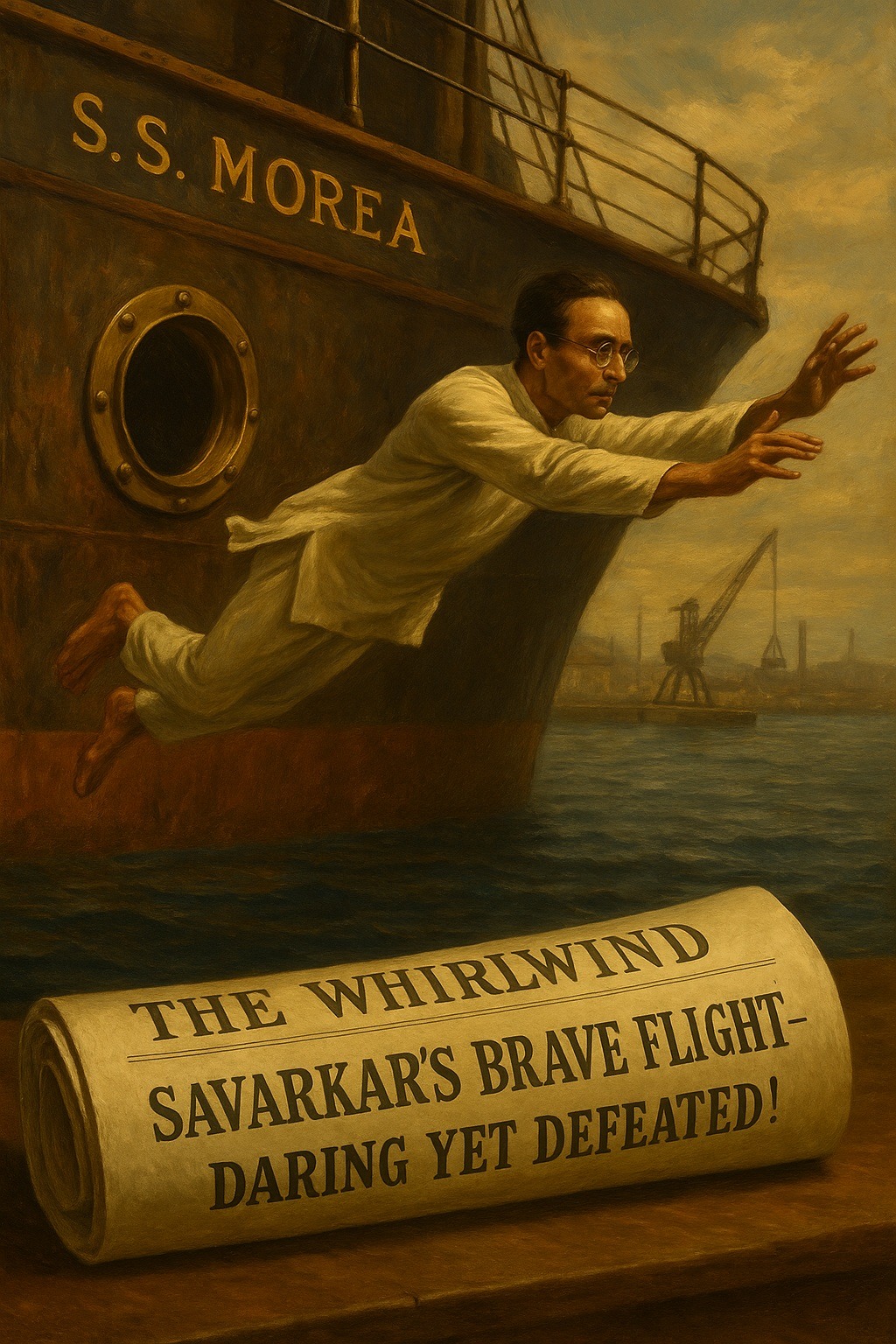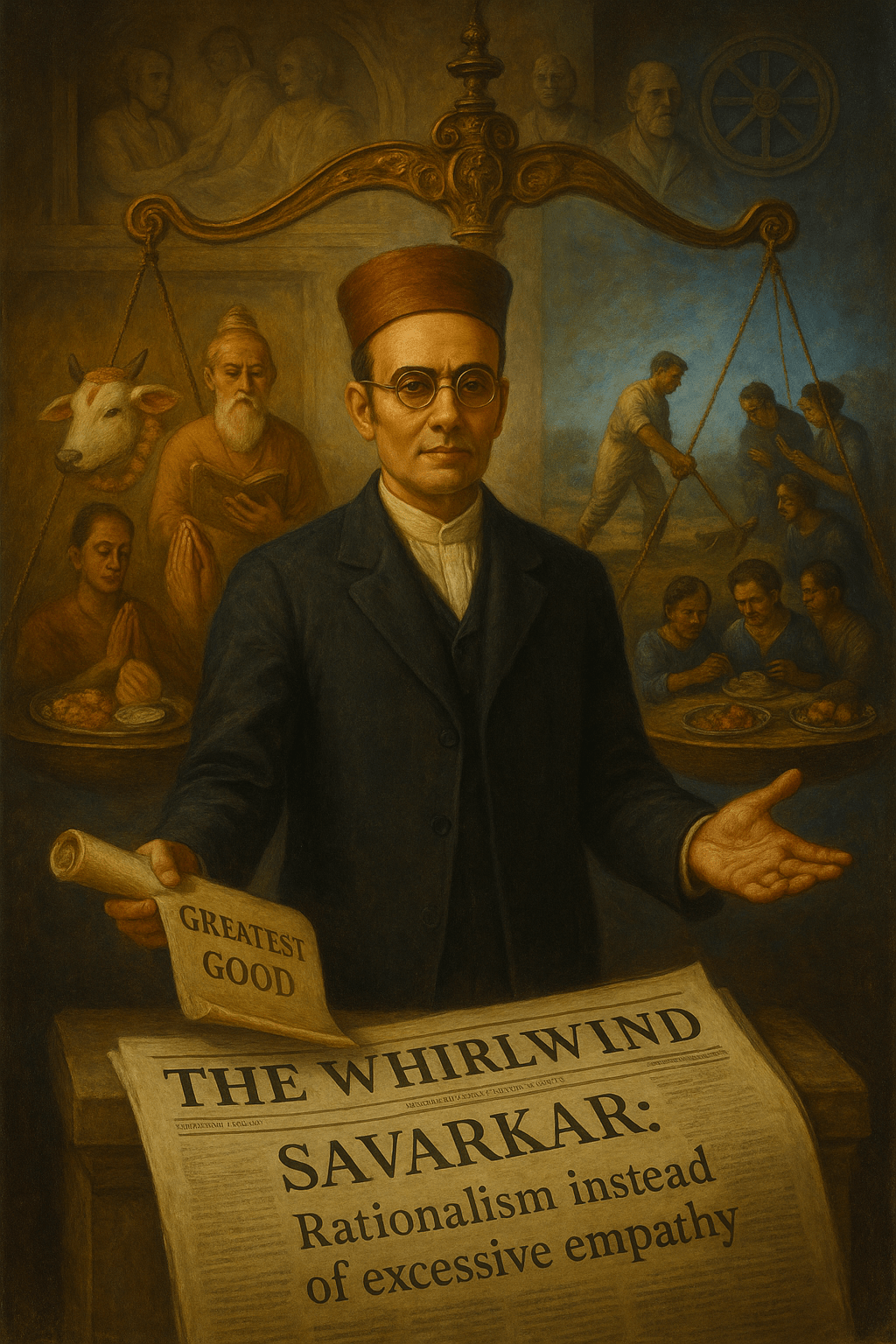Tag: TheWhirlwind
-
Since M.K. (Mahatma) Gandhi is called by many of his followers Rashtrapita (“Father of the Nation”), it is fitting that Vinayak Damodar (Veer) Savarkar be acknowledged as Hindu Rashtra Pita—the “Father of the Hindu Nation.” This title recognizes not only his seminal contribution to the Indian freedom struggle but also his immense personal sacrifices and…
-
The dramatic escape of Vinayak Damodar (Veer) Savarkar at the port of Marseilles in July 1910 remains one of the most notable episodes of India’s revolutionary struggle. Under strict British custody, Savarkar attempted a daring flight through the porthole of the docked S.S. Morea, swimming through the harbor waters to set foot on French soil.…
-
In the historiography of India’s struggle for independence, references typically focus on imprisonment, exile, or capital punishment as instruments of colonial repression. Less frequently noted, however, is the annulment of academic qualifications as a form of political sanction. The case of Vinayak Damodar (Veer) Savarkar (1883–1966) stands out in this regard: he became the first…
-
In July 1910, Vinayak Damodar (Veer) Savarkar attempted one of the most discussed escapes in the history of anti-colonial struggles. After leaping through a porthole of the British steamer S.S. Morea as it docked at Marseilles, he swam ashore and set foot on French soil – intending to claim political asylum. The Irregular Handover of…
-
Savarkar’s Coding of Hindutva; Metacode Rashtra, Part 9; Code Mythos (2/20); Codeelement Hindu Pantheon When we think of Vinayak Damodar (Veer) Savarkar, we often picture the fiery nationalist, the revolutionary in exile, or the thinker behind the idea of Hindutva. But one of the most fascinating aspects of his thought is how he used myth…
-
Savarkar’s Coding of Hindutva; Metacode Rashtra, Part 8; Code Mythos (1/20) When we hear the word myth today, we often think of stories that are not meant to be taken literally—legends with little claim to truth. Yet myths can do far more than entertain: they can inspire fascination, bind people together, and create a sense…
-
Savarkar’s Philosophy & Worldview, Part 11; Savarkar’s Five Philosophical Dimensions (4/6) Vinayak Damodar (Veer) Savarkar is often remembered for his contributions to India’s independence movement, for his activism, historical writings, and bold ideas. Among his many dimensions, his pragmatism stands out as a defining feature of his approach to social, political, and cultural challenges. Savarkar’s…
-
Vinayak Damodar (Veer) Savarkar’s escape attempt at the French port of Marseilles on July 8, 1910, remains one of the most daring and dramatic episodes in the history of Indian freedom fighters in Europe. Years later, in his final press interview, Savarkar himself described it as the most memorable event of his life. What unfolded…
-
Savarkar’s Coding of Hindutva; Metacode Rashtra, Part 7; Code Territory 6/6); Codeelement Des, Indivisibility of the Territory (2/3) For Vinayak Damodar (Veer) Savarkar, Nepal was far more than a neighboring state. Within his vision of an indivisible Hindu nation, Nepal held a place of central importance. Nepal as the Core of Hindu Rashtra Savarkar saw…
-
Savarkar’s Philosophy & Worldview, Part 10, Savarkar’s Five Philosophical Dimensions (3/6) Vinayak Damodar (Veer) Savarkar is often remembered for his unflinching advocacy of nationalism, but was also a man of profound philosophical depth and his philosophy encompassed much more than a call for political independence. In this third installment of our exploration of Savarkar’s five…

